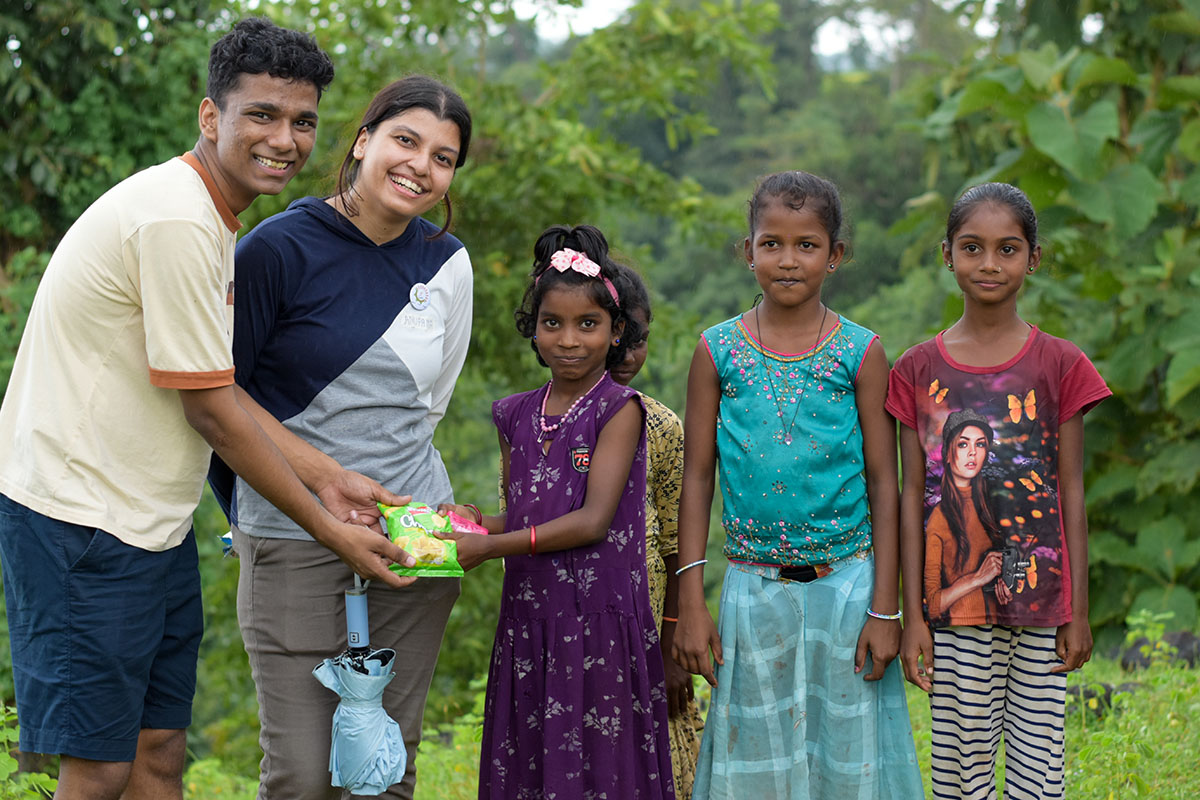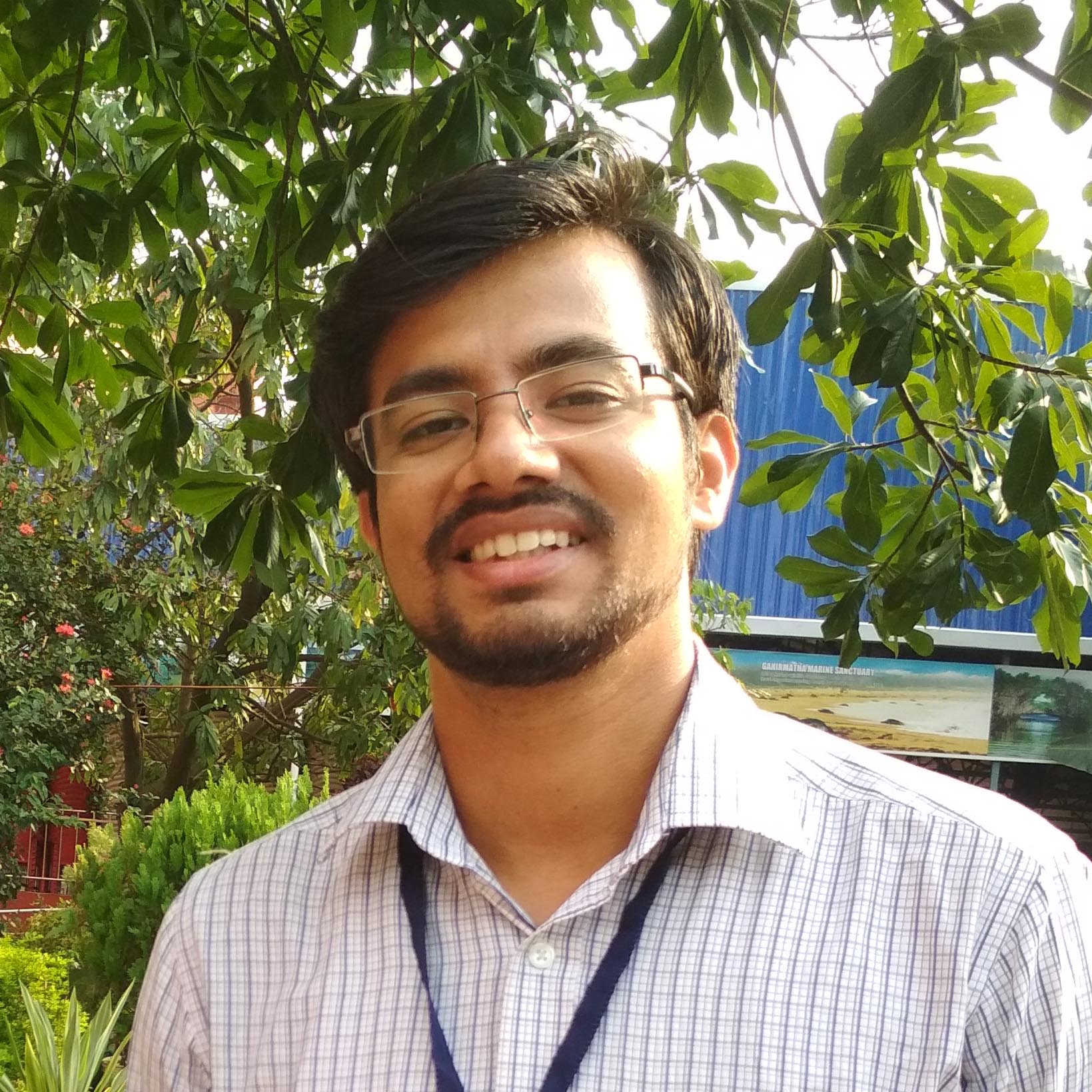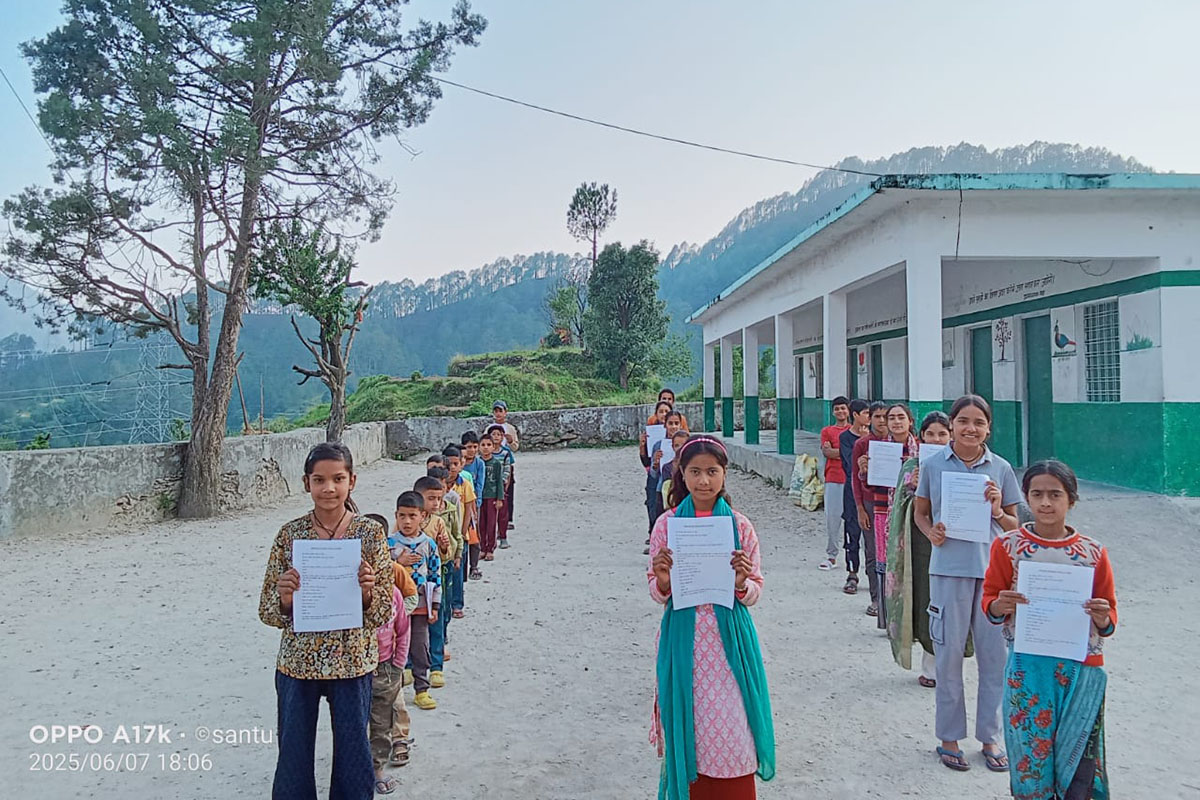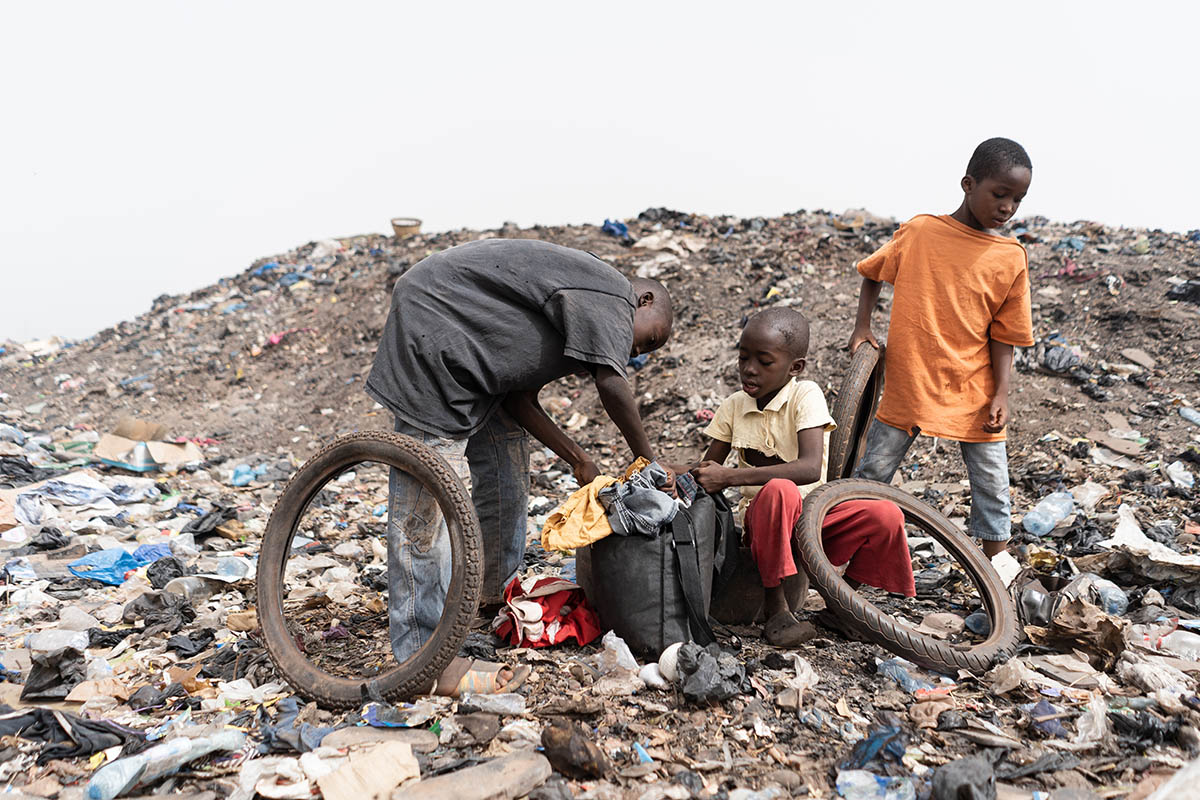A Visit to Dabhlon Village: A Step into a Simpler Life
October 14A recent two-day rural immersion camp to Dabhlon Village, organized by the Group for Rural Activities (GRA) [1] at IIT Bombay, provided students with a profound insight into rural life.
Dabhlon village is located in Jawhar tehsil of Palghar district in Maharashtra, India. The journey commenced at 5 am from IIT Bombay with the students boarding from their respective hostels. Upon arrival at the village, the students were warmly greeted by the villagers and treated to delicious tea, setting a welcoming tone for their stay.
After gathering at the village school, the students learned about the village’s history, struggles, and progress. They met the village Sarpanch, Sudam Ji. They discovered the efforts made by the youth club” Adivasi Asmitha Prathishthan” to elect him as their Sarpanch despite the lack of power and resources. Sudam Ji worked diligently, pursuing further studies and job opportunities, ultimately receiving a job offer from a company. However, he realized that he could not be the only one to enjoy these benefits. Choosing to return to Dabhlon, he left behind the job opportunity and united the youth club members, leading to remarkable advancements in the village’s infrastructure and development.
Progress is not when you take 100 steps alone; it is when you take 1 step at a time along with 100 people.
Under the leadership of Sudam Ji and the youth club, tremendous changes have been initiated—from constructing concrete roads to installing a smart TV in the local school for enhanced learning. However, the challenges faced by the villagers are undeniable, particularly the lack of quality education for students and limited access to nearby cities or towns. Low employment opportunities often result in financial distress for families, as many struggle to find consistent work. Yet, as the saying goes, “Diamonds are formed under pressure,” and the villagers of Dabhlon are no exception. Once given the opportunity, they indeed shine brightly.
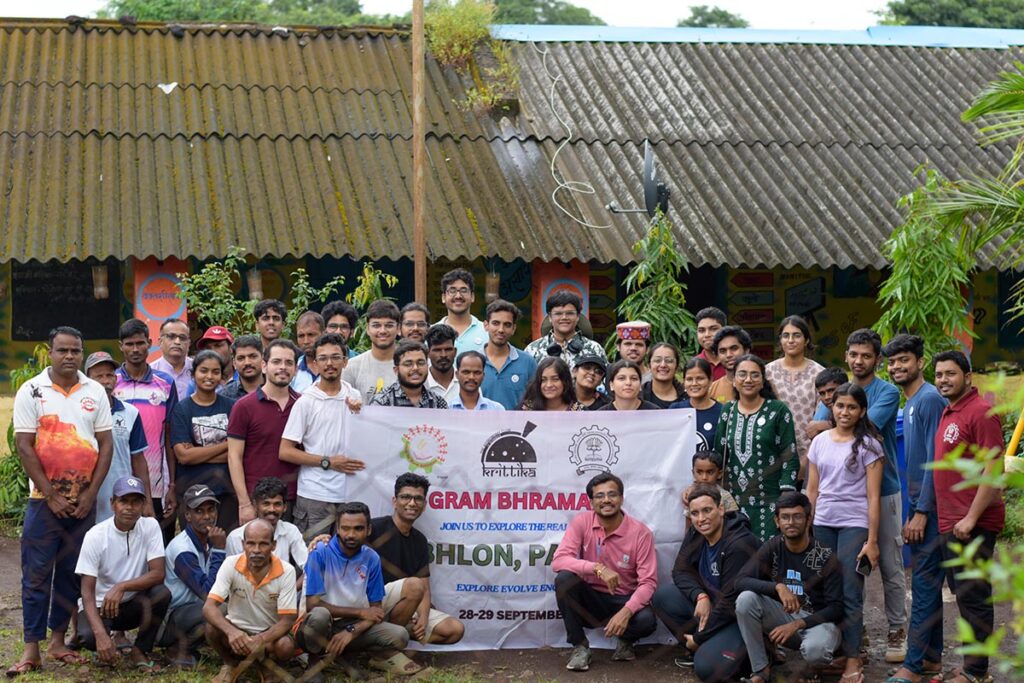
This story aligns closely with the Commonwealth Youth Forum’s theme of Navigating Our Course: Building Resilience for a Common Future, where young leaders drive community resilience through dedicated action. Sudam Ji’s decision to prioritize his community over personal gain serves as a powerful example of how youth leadership can bring meaningful change to rural areas.
The camp in Dabhlon was one of many initiatives led by the Group for Rural Activities (GRA)[1] at IIT Bombay. GRA is a student organization dedicated to fostering connections between students and rural communities. It organizes rural immersion camps, workshops, social internships, bicycle donation drives, talks by prominent leaders and teach me campaign in slums that allow students to explore the complexities of rural life and gain a deeper understanding of India’s diverse cultural fabric.
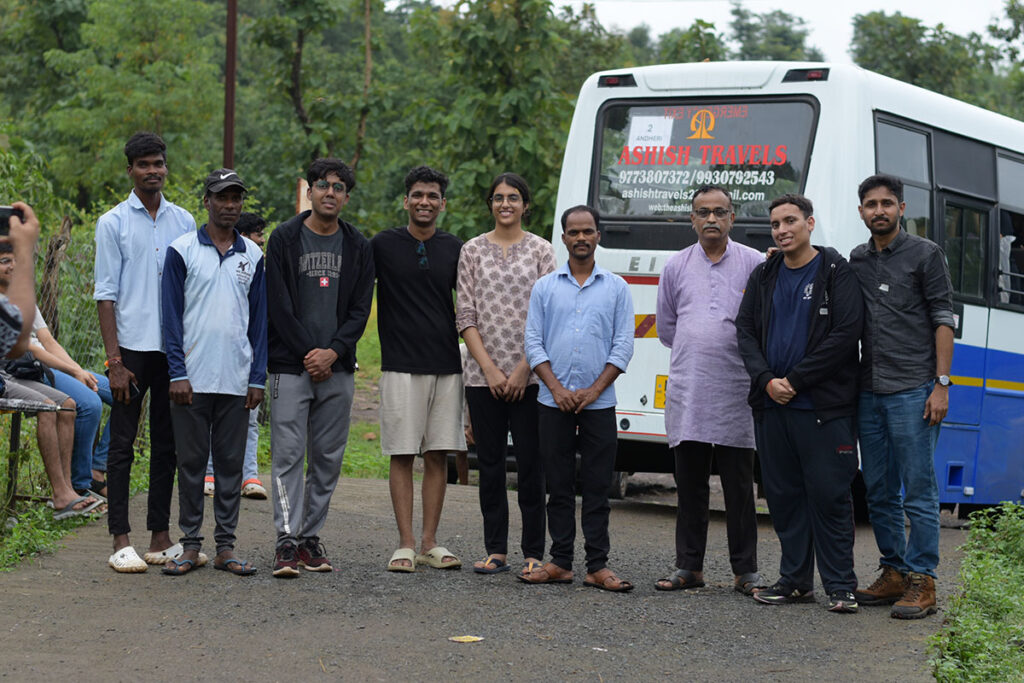
The students were divided into groups and stayed with local families, engaging in conversations about daily life and the challenges faced by the villagers while enjoying simple yet flavorful meals prepared by their hosts. On the following morning, the students assembled once more and met with the youth club, which included women—an inspiring step toward gender inclusivity. They visited Dhabosa waterfall to admire the stunning waterfall and explored the recently introduced E-Smart Clinic [2] “Unnat Bharat Abhiyan pilot project”, which performs over 40 medical tests and provides essential healthcare services to the community. The visit continued to a nearby boarding school run by the “Vanavasi Kalyan Ashram”, where children whose parents migrate for employment during Diwali reside and study and interact with them gaining insight into their daily routines and the challenges they face.
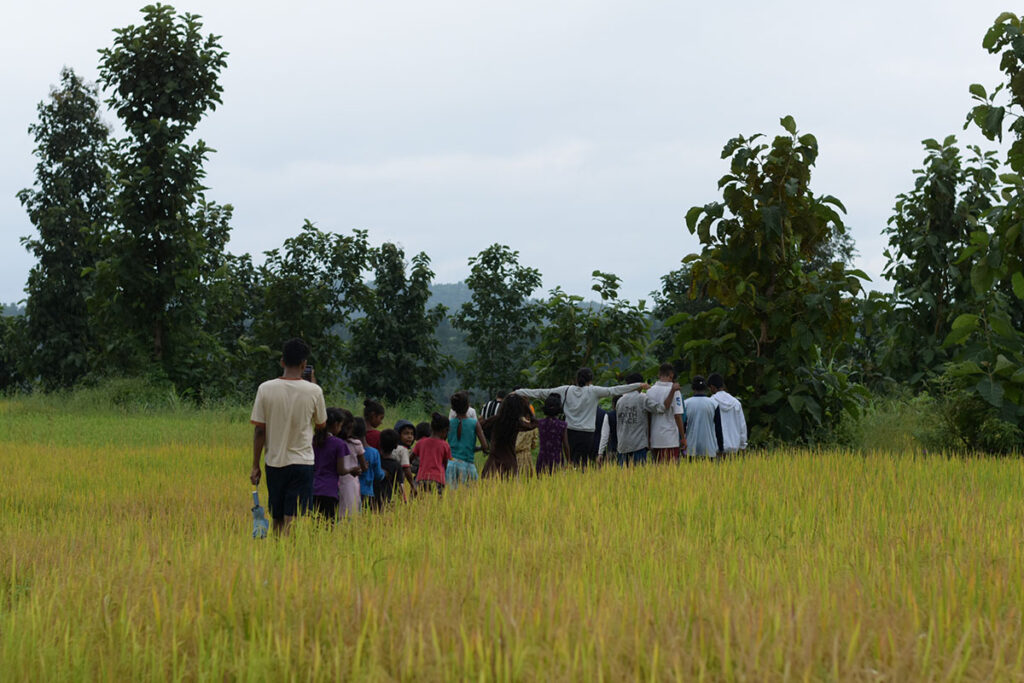
These visits highlighted the various initiatives aimed at improving rural living standards. The E-Smart Clinic [2], for example, exemplifies how rural areas can benefit from technology-driven solutions. Similarly, the boarding school is essential for supporting families that face challenges related to seasonal migration. This resonates with the forum’s plenary on Harnessing Youth-led Action and Solutions for Sustainability, which emphasizes the role of youth-driven projects in creating resilient, sustainable communities.
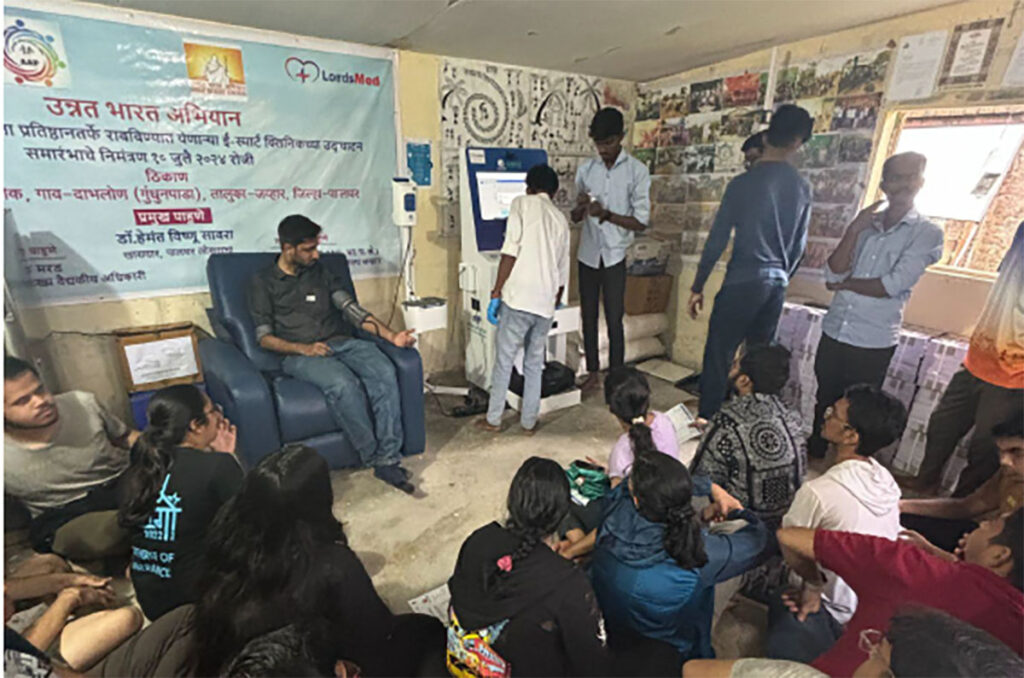
The students took away invaluable lessons from their experience in Dabhlon, particularly the villagers’ spirit of community and resilience. Inspired by the warmth and hospitality shown to them, they recognized the importance of unity as villagers supported one another despite limited resources. Sudam Ji’s commitment to his community exemplified how determination can lead to positive change. Through interactions with the villagers and children, the students gained insights into the challenges of rural education and living, enriching their perspectives and encouraging reflection on their own lives. As they bid farewell to their hosts, the villagers, and the adorable children, they carried with them memories of a truly transformative experience.
The camp’s impact aligns with another forum theme, Youth-Driven Approaches to Resilient Economies through Entrepreneurship, Skills Development, and Digital Innovation, highlighting how youth-led community projects can drive economic transformation in rural settings. By supporting education and healthcare initiatives, Dabhlon’s youth leaders contribute to a sustainable future where rural economies are strengthened, and opportunities are created for the next generation.
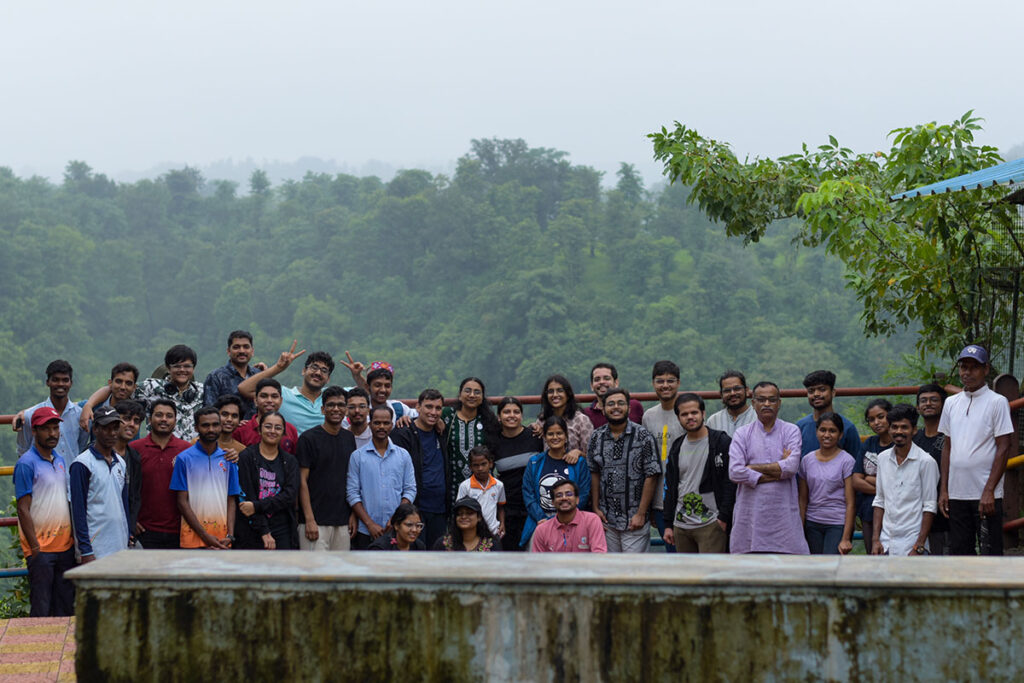
Article by: Vaibhav, Ayush, Aditya, Ajeesh, Tanushree, Eshika, Anupama, Rishi, Nikhil.
Compiled by Commonwealth Correspondent Sameer Misra
References
